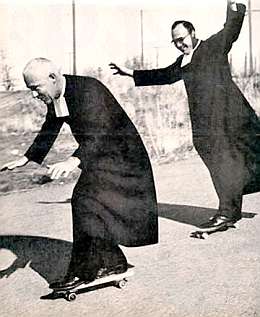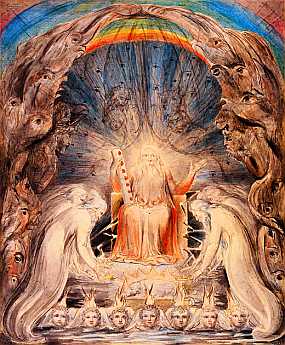 We seem to be having more than our share lately of worship services that don’t follow the bulletin. We don’t have a service outline in our bulleting for just that reason. Still, since we started attending in December 2004, I’ve noticed an uptick of services when you can just throw the script away.
We seem to be having more than our share lately of worship services that don’t follow the bulletin. We don’t have a service outline in our bulleting for just that reason. Still, since we started attending in December 2004, I’ve noticed an uptick of services when you can just throw the script away.
I love that. I wish more churches pitched their scripted Sunday mornings. (I wish more churches had reason to deviate from the script, but sadly, I won’t hold my breath on that one.)
Yesterday, God showed up again palpably. Last time, I was moved, but this time I just watched. It’s not about me. If He blessed others rather than me this time, that’s super.
Worship team practice before the service stunk, but when it came time to play, grace prevailed and the music flowed. The atmosphere changed in the church and you could tell something was stirring.
One of the things I appreciate about my church concerns the openness to letting anyone talk. The pastor and elders do a fine job of knowing when to let others stand up and take the microphone. That’s a real gift. It also means everyone’s involved in the service. People don’t just sponge it all up; they contribute in tangible ways.
I feel blessed to be a part of a church that has so many positives going for it.
I love to see my wife dance in church. Several of the women danced spontaneously—yet another blessing to have that openness to express one’s worship through dancing. But by the time the A/C kicked in (82 degrees in March?) I was pretty sweaty and so was my wife. We fanned each other after I came down from behind the drums.
We sit near the front. Since our church does draw a rural crowd, we get a lot of folks who sit in the last third of the church. Most of the visitors do, anyway. But this morning, two women visitors sat behind us. During the offering time, the church breaks up to greet others, so we chatted with the visitors.
Moments later, one of the men of the church approached the pastor with several things he felt we should be praying for. He listed the needs and called people up for prayer. At that point, I knew the pastor wouldn’t be preaching that morning and I got that “Oh no, the visitors aren’t going to see a normal Sunday” feeling.
It’s a mixed feeling. I want people to come back. I know when I’m out of town and visit another church, it’s always disconcerting to me to show up on that weird Sunday when nothing’s the way it normally is. I’m always fascinated by what constitutes “normal” church for other people, so I get disappointed when I get the guest speaker or it’s “Raise Money for the New Children’s Wing” Sunday or some other aberrant meeting.
So when it got a little “pentecostal” during the extended prayer time, I had that feeling wash over me—the “Hey, it’s not even noon, so no one can be drunk” riff on Peter’s original Pentecost sermon. When the worship team got called back up to the front, I had this in mind about our visitors:
If, therefore, the whole church comes together and all speak in tongues, and outsiders or unbelievers enter, will they not say that you are out of your minds? But if all prophesy, and an unbeliever or outsider enters, he is convicted by all, he is called to account by all, the secrets of his heart are disclosed, and so, falling on his face, he will worship God and declare that God is really among you. What then, brothers? When you come together, each one has a hymn, a lesson, a revelation, a tongue, or an interpretation. Let all things be done for building up.
—1 Corinthians 14:23-26
Plenty of building up happened Sunday. God blessed people and they blessed Him in return. That’s the best you can hope for on any given Sunday. Even if the blessing this particular Sunday might be perceived by outsiders as a bit unconventional.
I’m perfectly fine with whatever looniness I exhibit. I learned a long time ago not to be so stuck on myself that I keep God from doing a work in me or through me. But what about those visitors?
As you all well know, I’m not ashamed of the charismata. Yet I always get a little voice inside me saying, “What are the visitors thinking?” What I consider perfectly normal, they might think is…well, loony.
Or better, rightfully embarrassing.
The cross is embarrassing in some ways, isn’t it? We crucified our God. Not too many adherents of a particular religion are willing to accept that kind of blame. Some Christian churches aren’t, either. They got rid of the cross a long time ago. All that talk of dying to self made the visitors squirm.
Though it’s a more common practice today in Evangelicalism, the laying on of hands may embarrass some. We’re not a high touch culture, preferring our personal space. Hugging other people in church becomes a no-no, too. And let’s not get started on that holy kiss, either.
Christians cry in church, too. Even grown men. The reasons for doing so are legion, but in public they’re more rigidly defined. Seeing someone go outside those definitions, even in church, makes some people tense.
I think the mark of a good church is its willingness to be rightfully embarrassing, even if it might drive away potential members. The Gospel itself is embarrassing because it upends every standard cultural convention. Love your enemies. Pray for those who persecute you. If someone strikes you, offer the other cheek. Don’t hold grudges, forgive. Deny yourself in order to supply others. That baldfaced countercultural response drives some to consider us loony. We’re an embarrassment.
Or at least we should be.
Paul’s comments to the smug Corinthian church oozes with irony:
For who sees anything different in you? What do you have that you did not receive? If then you received it, why do you boast as if you did not receive it? Already you have all you want! Already you have become rich! Without us you have become kings! And would that you did reign, so that we might share the rule with you! For I think that God has exhibited us apostles as last of all, like men sentenced to death, because we have become a spectacle to the world, to angels, and to men. We are fools for Christ’s sake, but you are wise in Christ. We are weak, but you are strong. You are held in honor, but we in disrepute.
—1 Corinthians 4:7-10
We Christians have nothing to apologize for. If we’re truly living out the words of our Lord Jesus, nothing (or no one) can embarrass us. We are dead to the world. That world can laugh all it wants, but in the end, we’ll get the final guffaw.
So what does your church do that’s rightfully embarrassing?


 We seem to be having more than our share lately of worship services that don’t follow the bulletin. We don’t have a service outline in our bulleting for just that reason. Still, since we started attending in December 2004, I’ve noticed an uptick of services when you can just throw the script away.
We seem to be having more than our share lately of worship services that don’t follow the bulletin. We don’t have a service outline in our bulleting for just that reason. Still, since we started attending in December 2004, I’ve noticed an uptick of services when you can just throw the script away. Unlike Peter above, they’ve opened their minds to too many foreign sources of supposed truth, only to stumble into error.
Unlike Peter above, they’ve opened their minds to too many foreign sources of supposed truth, only to stumble into error.